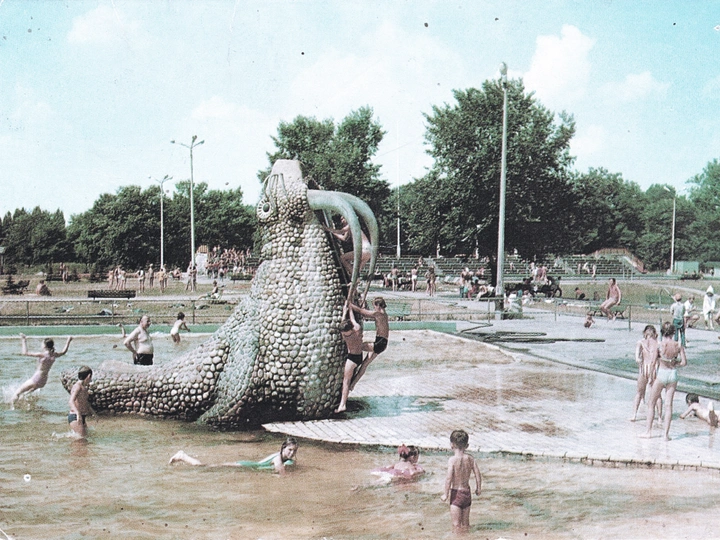swimming landscapes

Anna Szczepaniak, born in Poland, and graduated from Poznan University of Technology with a Masters degree in Architecture and urban planning. She has worked in various offices in Poznan (UGO), Paris (Kuma and Associates), Basel (HHF) and Copenhagen (BIG). From 2020 working in Berlin while planning objects, landscapes and urban spaces. After work researching Polish outdoor swimming pools from the last century. In her practice and studies she focuses on places and their relation to the environments - social, natural and political.
Outdoor swimming pools are neither fully architectural nor landscape elements. Frequently perceived as leftover space, predominantly used only seasonally with a clear, singular function. Yet those are places that are often of great interest to local communities, places of social gatherings, places for cooling down during hot days, places serving many. Somehow compact, neighbourhood outdoor pools are often replaced with much less affordable aqua parks. Poland has been building outdoor pools for over a hundred years - there has been plenty of existing infrastructure slowly turning into decay, while witnessing the growth of much less financially accessible water parks and private garden pools. I research the impact of this transformation - their ecological cost, loss of community building qualities or even aesthetics to understand if there are better solutions and ways of dealing with years of the swimming heritage. There are better and worse ways of cooling down in our rising climate - and I want to understand if there is a set of collective urban fixes that we can collect, study and apply using what we already have.